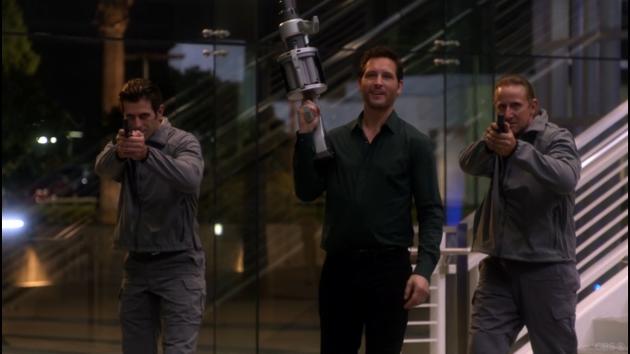 |
| Legend to Legend |
Like the 2016 GOP Presidential campaign, the 88th Academy Awards was one wild and unpredictable ride. They had good moments (Mark Rylance), bad moments (Leo), and ugly moments (Sam Smith), fitting in a year where Ennio Morricone won his first competitive Oscar...at age 87.
First, a quick recap of our winners.
Mad Max: Fury Road (6)
The Revenant (3)
Spotlight (2)
Room (1)
The Danish Girl (1)
The Hateful Eight (1)
The Big Short (1)
Bridge of Spies (1)
SPECTRE (1)
Ex Machina (1)
Inside Out (1)
Mad Max: Fury Road took more Oscars than all other films, all in technical fields.
The Revenant took three, all in major categories.
Spotlight took two, both in major categories.
If you look at the list, you see that the Oscars refused to play by the regular rules. Usually, the film with the most nominations wins Best Picture.
The Revenant with 12 was the frontrunner, but didn't win Best Picture The film that wins the most Oscars tends to win Best Picture.
Mad Max: Fury Road won 6 out of 10 nominations, but didn't Best Picture. The Best Picture winner scored the lowest number of Oscars in recent memory, barely edging out all the other non-multiple winners. Not since 1952's
The Greatest Show on Earth's improbable (and still shocking) Best Picture win has a Best Picture winner been so poorly rewarded with just two Oscars (its other win being Original Story).
Usually, Best Picture, Best Director, and Best Film Editing go hand in hand, but this year, each category went with a separate winner. Again, unpredictable was this year.
Now, the breakdown:
Best Picture:
Spotlight
Best Actor: Leonardo DiCaprio (
The Revenant)
Best Actress: Brie Larson (
Room)
Best Supporting Actor: Mark Rylance (
Bridge of Spies)
Best Supporting Actress: Alicia Vikander (
The Danish Girl)
Best Director: Alejandro G. Inarritu (
The Revenant)
Best Original Screenplay:
Spotlight
Best Adapted Screenplay:
The Big Short
Best Visual Effects:
Ex Machina
Best Sound Editing:
Mad Max: Fury Road
Best Sound Mixing:
Mad Max: Fury Road
Best Production Design:
Mad Max: Fury Road
Best Original Score:
The Hateful Eight
Best Original Song:
Writing's on the Wall (SPECTRE)
Best Makeup & Hairstyling:
Mad Max: Fury Road
Best Film Editing:
Mad Max: Fury Road
Best Costume Design:
Mad Max: Fury Road
Best Cinematography:
The Revenant
Best Animated Feature:
Inside Out
Best Animated Short Film:
Bear Story
Best Documentary Feature:
Amy
Best Documentary Short Subject:
A Girl in the River: The Price of Forgiveness
Best Foreign Language Film:
Son of Saul (Hungary)
Best Live Action Short Film:
Stutterer
Let's talk briefly about some of the upsets. I think at the top of that list is Mark Rylance's win for
Bridge of Spies. I think the audience was genuinely shocked when his name was announced, not even those that voted for him expecting him to actually win. Most predictions pegged Sylvester Stallone as the winner for his turn in
Creed, with both Christian Bale and Mark Ruffalo being the dark horses. Rylance's name I don't think was even considered, one of those 'it's just an honor being nominated' type of thing.
However, the Supporting Actor category is one where genuine upsets have the best chance of taking place. Three years ago, most oddsmakers had Tommy Lee Jones all but certain to win for
Lincoln, only to find Christoph Waltz coming from behind with his win for
Django Unchained. Also, Best Supporting Actor is no longer the de facto Lifetime Achievement Award it might have been once (just ask Burt Reynolds).
Rylance was the highlight of
Bridge of Spies, and even its detractors never said anything bad about his performance. Yet I don't think anyone, not even Rylance, expected him to best Rocky. Sadly, Stallone joins Al Pacino and Cate Blanchett as being the only people nominated for earning nominations for playing the same role in two different films...and losing both times. Worse for Sly, unlike the other two (and Bing Crosby, the first to be nominated for playing the same role in two different films), he has yet to actually win for any.
I think the bigger shock was
Ex Machina's win for Visual Effects. I think most people expected either the bombast of
Mad Max: Fury Road or the spectacle of
Star Wars: The Force Awakens to win. As I've yet to see
Ex Machina I cannot say whether it was a worthy win, but I do think that a film where the visual effects served the story rather than drown it shows a positive sign in the Academy.
Now comes the bad. As expected Leonardo DiCaprio won for
The Revenant (or as I call it, Leo's Most Recent Naked Oscar Plea...and in this case, literally 'naked'). I think his win is bad for these reasons. First, he didn't win for this specific role. He won because too many people, both inside and outside The Academy thought he was 'overdue', in essence turning this into a de facto Lifetime Achievement Award (odd given he's only 41). This idea that it was 'his turn', not his breathing and endless suffering in
The Revenant, is what got him the Oscar. Again, I haven't seen all his competition (though I will immediately dismiss Eddie Redmayne in anything), but this idea that DiCaprio should have won because it was time for him to win for something,
ANYTHING, is unfair. He's given better performances in other films (
The Wolf of Wall Street, The Aviator), and the idea that one should get Oscars because he/she has been overlooked too many times in the past is like giving someone a promotion because he/she has been passed over for one many times...even if there are better candidates.
Second, it was bad because it gave DiCaprio another opportunity to lecture the world about his pet cause...global warming/climate change. Somehow, DiCaprio has it in his head that he's some sort of environmental expert, and that we are all beholden to him for wisdom and insight into such matters. Given his penchant for large luxury boats and private planes which both use up large amounts of fuel and leave a much larger carbon footprint than I do, one wonders why he cannot see the disconnect between his words and his actions. My fellow critic
Christian Toto holds that this is hypocrisy. I think it is merely disconnect: DiCaprio holding a view that rationalizes his own lifestyle going against his tenets with the idea that its the message that is important, not the messenger.
The political messages came in loud and clear with Adam McKay and Charles Randolph's Adapted Screenplay for
The Big Short. With their calls to break up the big banks and not allow the political process to be used by 'millionaires and billionaires', it was a millimeter short of asking everyone there to #FeelTheBern.
As a side note, I'd like to point out that the man who made
Step Brothers has an Oscar, while the men who made
Vertigo, Magnificent Obsession, Sunrise, Red River, The Blue Angel, and
Metropolis never got one. Just a thought there.
Now we get to the ugly, and I do mean UGLY! I really don't have an argument against any of the winners (well, I didn't think Inarritu was the Best Director, but I'm not going to go to war over it). That is, except for one category...
Let's take a look at the Best Original Song winner. The songwriters brag about how the song was written in 20 minutes, and the track was recorded in one take. With that,
Writing's On the Wall from
SPECTRE beat out the OTHER song from That Porn Movie and three songs few people had heard of. OK, so maybe it was a weak field where the BIG song ends up winning (something that would probably not have happened if
Love Me Like You Do from
Fifty Shades of Grey, not
Earned It, had been the nominee). However, I have not heard anyone make the claim that
Writing's On the Wall is a.) a great song or b.) even a good Bond Song. On the contrary, Writing's On the Wall is thought of as one of the worst Bond Songs to come down the pike in a long time.
Yet there he was, rocking back and forth as if he were holding on to the microphone stand for dear life, not hitting the high notes he wrote for himself. Compare Smith's recreation of a building undergoing an earthquake to The Weeknd's confident performance of
Earned It and Lady Gaga's masterful performance of '
Til It Happens to You. Despite how his performance was a shambles and the song dreadful, there he is, joining Rodgers & Hammerstein, Lerner & Lowe, and Stephen Sondheim.
 |
SURPRISE!
I'M NOT GAY ANYMORE! |
Oh, yes, Stephen Sondheim. He won an Oscar for Best Original Song (
Sooner or Later from
Dick Tracy) in 1990 (two years before Smith was born), and if memory serves correct...he's openly gay. And so is Elton John (Best Original Song:
Can You Feel the Love Tonight from
The Lion King) in 1994 (when Smith was 2 years old). Oh, and then there was Howard Ashman (Best Original Song:
Under the Sea from
The Little Mermaid and
Beauty & The Beast from
Beauty & The Beast) in 1989 and 1991 respectively (both before Smith was born) and Melissa Etheridge (Best Original Song:
I Need to Wake Up from
An Inconvenient Truth) in 2006 (Smith at age 14, old enough to know his sexual preference but apparently unaware who Etheridge is or that she is openly gay herself).
OK, so I'll grant that Smith, not the brightest bulb, misunderstood Sir Ian McKellen's observation that no openly gay man had won an ACTING Oscar and mistook that for no openly gay man having won ANY Oscar (a point of contention
Milk screenwriter Dustin Lance Black took umbrage at...as well as Smith allegedly hitting on Black's lover, diver Tom Daley). However, Smith decided that his win was a historic point, a turning point in history equaling, perhaps even greater than the
Obergefell v. Hodges Supreme Court decision legalizing same-sex marriages in the United States. Therefore, he was going to dedicate his win to the LGBT community.
I'm sure ISIS will stop throwing gays off buildings now that the sensitive singer of
Stay With Me has a gold statue. I'm sure no kid will get thrown out of his/her house now that Sam Smith was given a prize for writing a song in 20 minutes.
I think his declarations of greatness both artistically and morally feed into the millenials general narcissism, this sense that they know all and are better than all. Look, kid, let me put the writing on the wall:
Your.
Song.
Stinks.
I don't care you got an Oscar for it.
Sweet Leilani won Best Original Song.
It Goes Like It Goes won Best Original Song.
In the Cool, Cool, Cool of the Evening won Best Original Song. I defy you to sing them without looking them up, let alone from what films they came from (
Waikiki Wedding, Norma Rae, and
Here Comes the Groom respectively).
I blame Adele. Ever since all my fellow critics went into orgasms over
Skyfall, they'll let any old piece of crap win. Here were all these critics saying how
Skyfall was THE GREATEST SONG WRITTEN IN THE HISTORY OF ALL MANKIND, greater than
Over the Rainbow, greater than
Amazing Grace, greater than
Goldfinger or
Nobody Does It Better.
I love Adele, but
Skyfall was junk. Its lyrics were inane ("So overdue I owed them". Bet George & Ira Gershwin wish they could write such music). It's also pretty much forgotten now. People still remember
Goldfinger and
Nobody Does It Better and even
A View to A Kill, but
Skyfall? Same with Writing's On the Wall.
I warned that
Skyfall was terrible and that it won only because people LOVE Adele. I similarly warned that
Writing's On the Wall was even worse...and it went on to win. Only this time, at least my fellow critics woke up and said it was terrible. Wasn't enough to stop the crazy train from overtaking the Oscars.
At least the music department got SOMETHING right with Morricone's win. At last the Legend gets a real Oscar. So what if he doesn't speak English? Seeing the dignified old man receive his well-deserved Oscar warmed my heart. His elegant speech making special thanks to John Williams (the last great American film composer as far as I can tell) was beautiful and takes the sting out of DiCaprio's illegitimate win and Smith's horror.
That, and seeing Eddie Redmayne go down in flames.
At least I have those.
Well, let's hope we get better songs next year, and movies as good as we got this year.



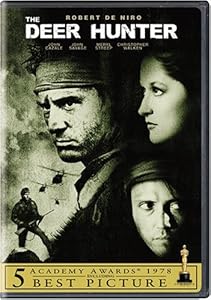


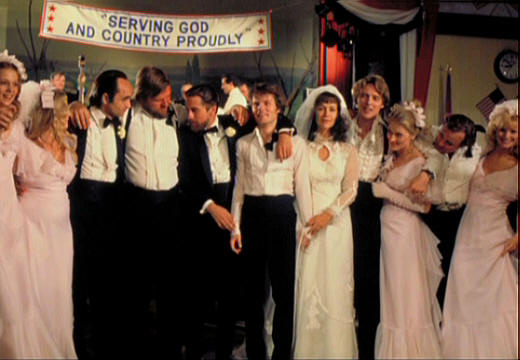
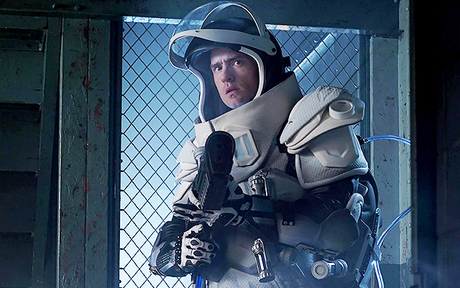
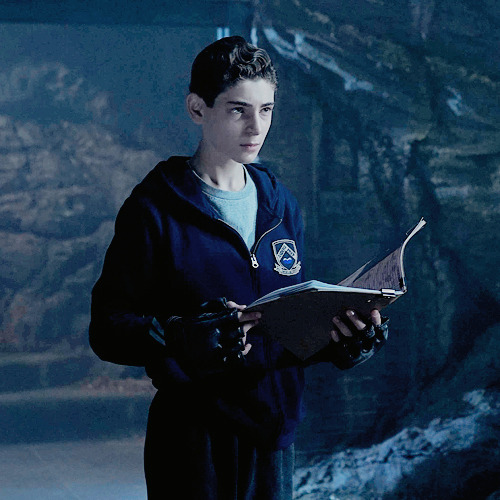




_1.jpg/revision/latest?cb=20111122031414)


